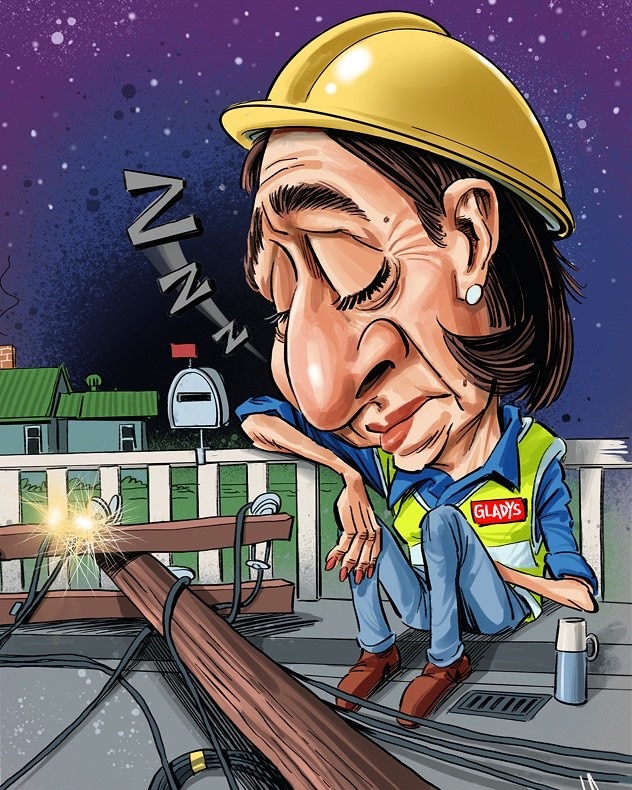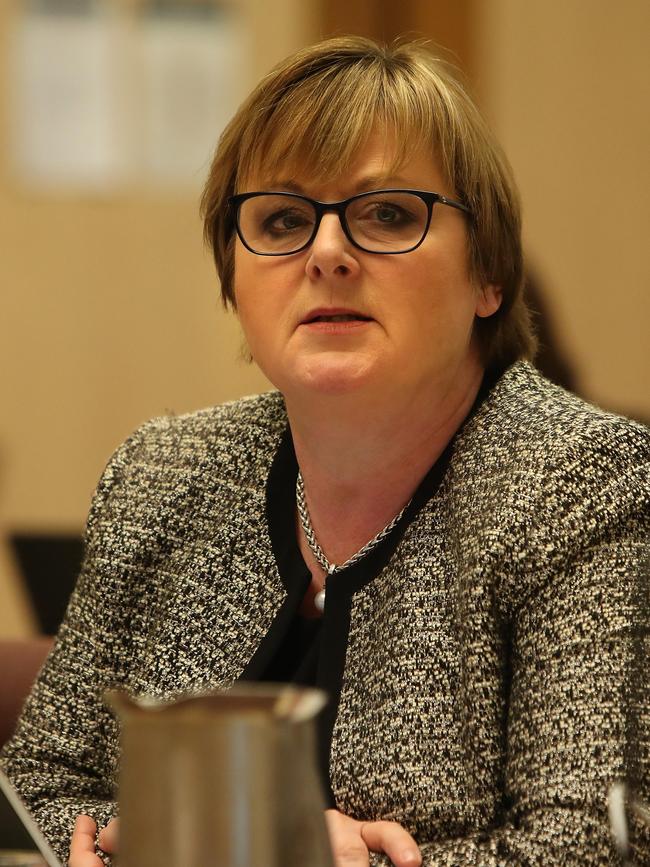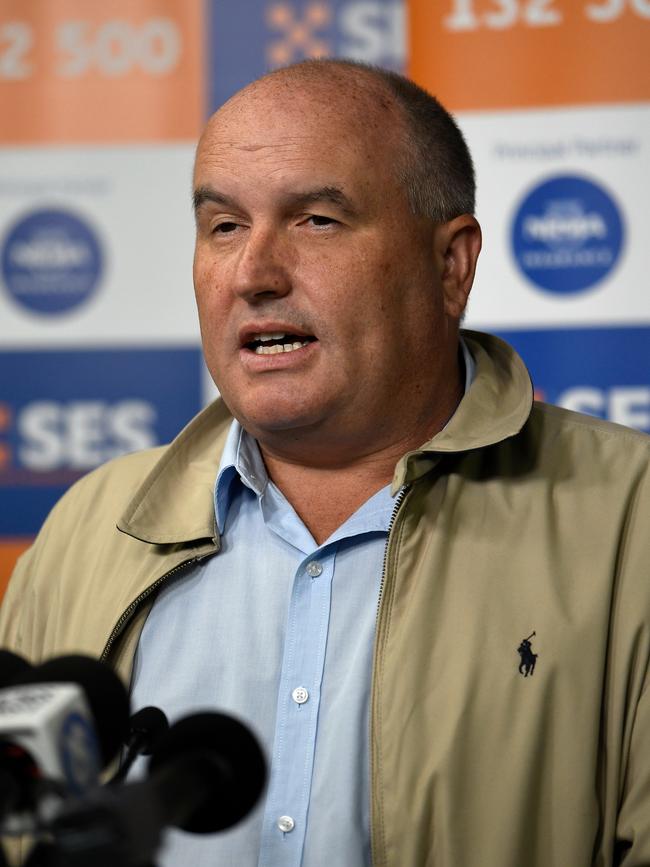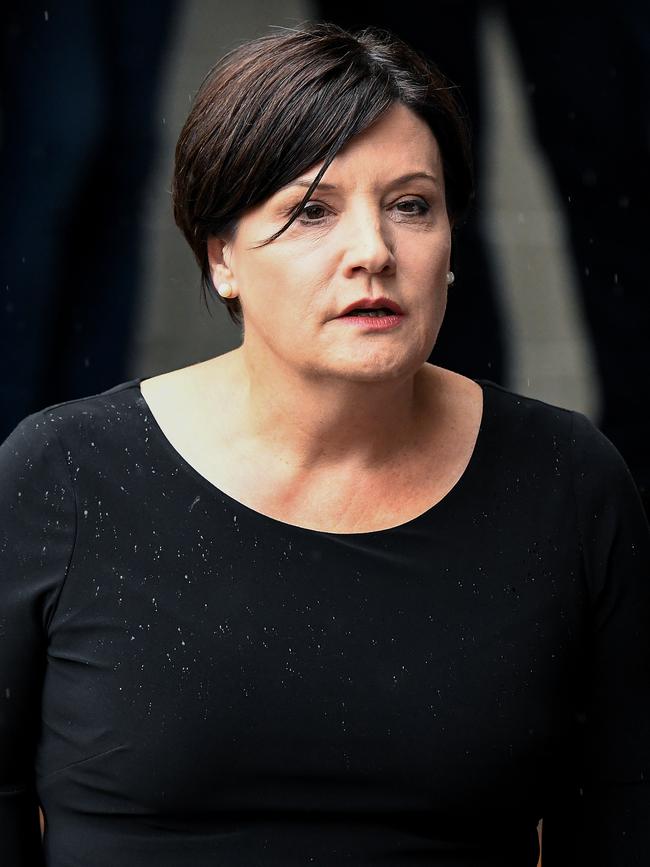Storm aftermath puts future asset privatisations under the microscope
The government was caught off-guard when storms knocked out power for thousands of households — and Labor will be quick to use this to argue against more privatisation of assets.
Opinion
Don't miss out on the headlines from Opinion. Followed categories will be added to My News.
- ‘One in 30 year event’: Premier defends storm response
- $320m insurance ‘catastrophe’ declared after storms
It is almost unfathomable to think that in modern day Sydney, one of the great cities of the world, thousands of families will today enter their seventh day without electricity.
A ferocious storm, a one in 30- year event, tore shreds through our suburbs on the weekend.
Some things we can’t control.
But what we can control is how quickly we restore power and how quickly we clean up the mess.
This storm has exposed a painfully slow, substandard clean-up response — and that is a blight on this city.

NSW sold off its majority stake in Ausgrid in 2016. In many ways it’s the poster child of the state’s asset recycling scheme — you know, the one that has given us rivers of economic gold and funded our wealth building infrastructure program.
Those with economic nous don’t dispute that this transaction set the state’s finances up for success over the long term.
But this crisis will, in the short term, give Labor ammunition with which to argue against any future privatisation agenda. After all, they will argue, what’s the point of selling stuff off if it just results in less reliable service?
The idea that governments are better at this stuff than the private sector goes unquestioned, of course.
MORE OPINION
Why we should be worried by the High Court’s bizarre ruling
How to write the perfect love letter this Valentine’s Day
Blame it on the rain — not Elton John
But the fact is that whether the state owns the majority of Ausgrid or does not, Gladys Berejiklian still owns the problem of something so crucial as making sure people can turn on lights and have hot showers.
Ausgrid stands accused of cutting staff numbers to their bare bones in the corporatisation of the organisation.
But when the power company made an unprecedented plea to the government for help to assist with clearing storm debris, the help did not come fast enough.
This wasn’t a plea for a handout — I have been told that Ausgrid is prepared to pay for any government assistance it receives and fully expects to be billed.
But it took an entire day after my front-page story revealing Ausgrid wanted military assistance for the state government to decide to send another 100 SES volunteers to help.
It was a simple response that surely could have been decided on a 7am phone hook up, instead of a full day of negotiations between ministers and Ausgrid and a turf war over whether it would be military or SES who would help.

The army was on standby from early Wednesday morning after Federal Defence Minister Linda Reynolds said she was happy to assist.
But the request was blocked after Emergency Services Minister David Elliott said there were enough state resources to meet demand.
Why then did it take an entire day for a decision to be made to send extra people out to lop down trees and clear branches so electricians could get to the work of powering up homes?
Some were briefing that Ausgrid was taking too long to make the sites safe. Well, then, send more electricians.
Why should it be complicated? No one without power cares where on Earth help comes from.
It is impossible to deny there is a problem this week. It’s easy to blame Ausgrid, but those people who are currently camping in suburbia aren’t interested in blame (yet) — they just want power.
Whether the asset is sold off or not, the situation was so dire that the government should have acted sooner.
The ongoing political ramifications of this event will be significant.


More privatisation, in one form or another, could yet prove critical for this state from an economic perspective and now the sell of this, pardon the pun, will be a whole lot harder.
It is a simple economic fact that the NSW government will either need to borrow more money (not a bad idea with debt levels at a record low) or continue its asset recycling program if it is to fund the mammoth infrastructure program it continues to announce.
As we stand, NSW is currently staring down a looming economic budget bomb.
The triple threat of coronavirus, bushfires and drought is a problem that could not have been foreseen but that will have significant impact on the state’s economy.
Growth will slow, although it will only be a short-term hit.
Today, in the Treasurer’s first major remarks on this problem, he tells me that he will “put people before numbers”.

It’s easy to view this as a veiled swipe at Canberra who for so long have been criticised for trying to hold on to a surplus for the sake of the headline.
It’s also easy to read the remark as the Treasurer laying the groundwork for a budget position far less rosier than NSW has become used to.
It’s too soon to say, of course, but we are being prepared.
All of this combined will give the Labor Opposition some material to work with in 2020, if Jodi McKay can flex some muscle as an effective Opposition leader.
So far, she’s gone missing.
Labor MPs are furious that the party didn’t level a stronger attack on Emergency Services Minister Mr Elliott who had to return from holidays as the fires raged.
Labor was hamstrung though because McKay herself was in Scotland during the fires and didn’t feel she could wage a war on Elliott.
Even this week, when the party should have been on the ground in power-deprived suburbs shining a light on the Ausgrid farce, the Labor shadow cabinet went to Tumut to talk bushfires.
People without power have been let down this week on all fronts.
The storms and this failed clean-up must be a lesson from which everyone learns.

